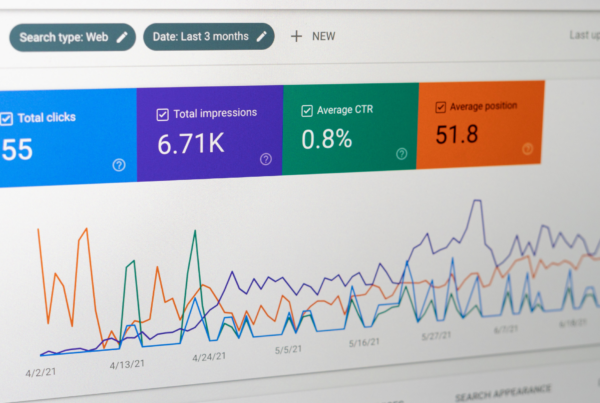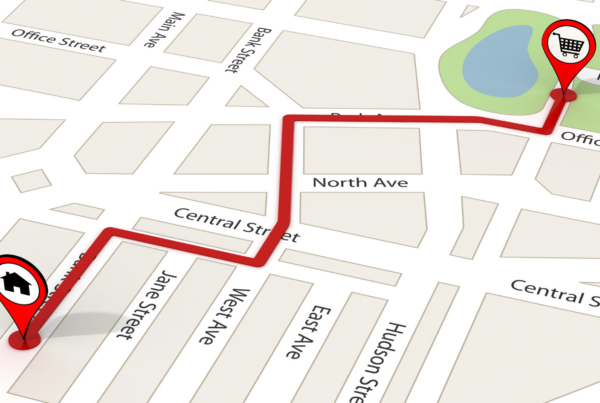Local SEO can be a game-changer for small businesses, helping you appear on Google when it matters most: when someone’s nearby and ready to buy. But too often, well-meaning companies trip themselves up with simple, avoidable errors.
In this article, we’ll explore the 7 most common local SEO mistakes and, more importantly, how to fix them. Whether you’re managing SEO in-house or working with an agency, this guide will help you take control of your visibility and drive more local leads.
Article Contents
1. Neglecting Your Google Business Profile
Many small businesses set up a Google Business Profile (formerly Google My Business) and never touch it again. That’s your first local SEO mistake.
Why it matters: Your Google Business Profile is the first thing customers see in search and Maps. An outdated or incomplete profile sends the wrong signal — or worse, doesn’t appear.
Fix it:
- Complete every field — opening hours, services, products, images, FAQs
- Post weekly updates or offers
- Encourage happy customers to leave reviews
- Respond to all reviews (positive and negative)
Want support optimising your listings? We can help.
2. Inconsistent Business Information (NAP)
NAP = Name, Address, Phone Number.
Google gets confused if these details aren’t inconsistent across your website, directories, and listings.
Why it matters: Inconsistent NAP info damages trust and can hurt your local rankings.
Fix it:
- Audit your business listings across the web (Yell, Yelp, Bing Places, Apple Maps, etc.)
- Use a local SEO tool or agency to track and update them
- Stick to a single format (e.g. “St.” vs “Street”) and apply it everywhere

3. Ignoring Local Keyword Intent
Too many businesses target broad keywords like “plumber” or “SEO agency” without adding location context.
Why it matters: Local searches are intent-rich. People aren’t just looking — they’re ready to act. You won’t appear in these valuable searches if your keywords don’t reflect local intent.
Fix it:
- Target terms like “plumber in Farnham” or “SEO agency near me”
- Include town, county, or neighbourhood keywords in title tags, H1s, and meta descriptions
- Create location-specific landing pages if you serve multiple areas
4. Thin or Generic Website Content
If your homepage says, “Welcome to our site. We offer a range of services,” you’re not giving Google or your customers much to work with.
Why it matters: Google wants to see unique, helpful, location-specific content. Thin content = poor rankings.
Fix it:
- Create detailed service pages that speak to customer pain points
- Add location-specific content where relevant
- Use FAQs, testimonials, and case studies to build trust and relevance
5. No Strategy for Reviews or Reputation
Reviews are not just social proof — they’re a core ranking factor in local SEO.
Why it matters: Google looks at review quantity, frequency, and sentiment when ranking businesses locally. Customers look at them before they buy.
Fix it:
- Build a review generation process (e.g. follow-up emails, QR code cards)
- Ask happy customers to leave feedback on Google, Facebook, and Trustpilot
- Monitor your reputation and respond to all reviews professionally
6. Poor Mobile Experience
You’re losing local business if your site is slow, clunky, or unreadable on a mobile phone.
Why it matters: Most local searches happen on mobile. Google prioritises mobile-first indexing. A poor mobile UX damages rankings and conversions.
Fix it:
- Make sure your website is responsive and mobile-friendly
- Improve load speeds using image compression and fast hosting
- Ensure key info (phone number, location, call-to-action) is instantly visible
7. Not Tracking Local SEO Performance
If you’re not measuring your results, you’re guessing. And guessing doesn’t scale.
Why it matters: Small businesses often overlook local-specific data like Google Maps visibility, direction requests, or local keyword performance.
Fix it:
- Use Google Search Console and Google Business Profile Insights
- Track calls, direction requests, and form fills
- Set up local rank tracking for key service + location keywords
- Use tools like BrightLocal or call-tracking platforms to go deeper

Get the Foundations Right, and Local SEO Will Work Harder for You
Local SEO isn’t about chasing quick wins or gaming the algorithm. It’s about establishing the right foundations consistently and with purpose.
The reality is that most small business SEO errors are easy to avoid once you know what to look for. But if you’re doing everything else right — showing up for customers and offering brilliant service — your visibility online should reflect that.
Here’s what to focus on next:
- Keep your Google Business Profile active and up to date
- Make sure your business details are accurate everywhere online
- Use local keywords that reflect real customer intent
- Regularly ask for reviews and respond to them
- Check your website speed and mobile usability
- Track what’s working and adjust based on real data
And if you’re unsure where to start or just don’t have the time, that’s where we come in.
We don’t offer bloated reports or vague strategies. We fix what’s broken, build what’s missing, and give you a local SEO engine that quietly brings in leads while you run your business.
Need help building your local visibility?
Let’s start with a visibility review or a practical SEO audit talk to us about Local SEO today.




